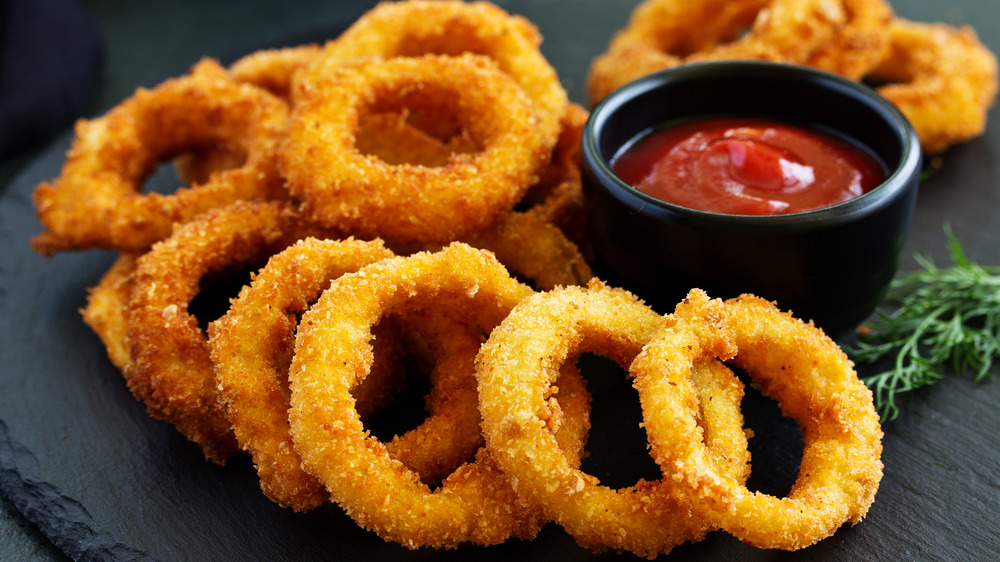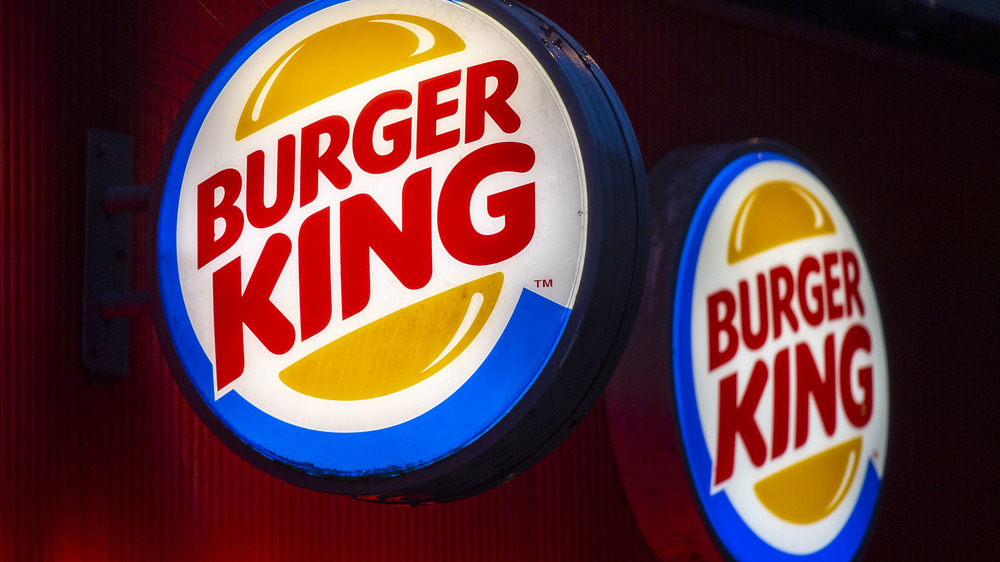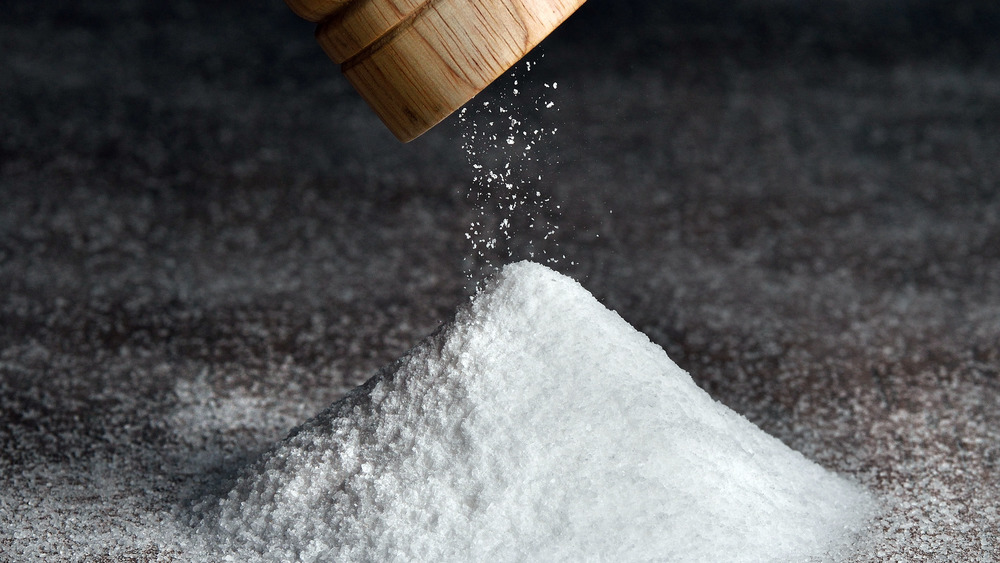The Fast Food Chain With The Worst Onion Rings Might Surprise You
A fast-food chain that wants to keep you as a committed customer should follow the sage advice of Beyoncé: "If you like it, then you shoulda put a ring on it" (via Genius). Namely an onion ring. Of course, quality also matters. While any old onion can make you cry, great onion rings should make you shed tears of joy. To cover all the bases, they must strike the right balance of breading and onion, have batter that hits a home run, and achieve a crunch that totally knocks it out of the park.
Bad restaurant onion rings, however, will make you cry foul or even make you cry foul language. What fast-food brand is most likely to make you curse the day you laid eyes on its onion rings? While there's no totally objective answer, perhaps the worst offender is Burger King. You might expect a big-name chain with a monarch mascot to serve you food fit for a Queen Bey. Yet instead of rocking like Jay-Z's diamonds, Burger King's onion rings are closer to being the cubic zirconia of fast food.
One ring to roil them all
Music artist Lorde, who ought to be called "Lorde of the Onion Rings," devoted an Instagram account to reviewing onion rings. When the "Royals" singer evaluated Burger King's, she sang the opposite of their praises, noting their "mulched onion filling" and rating them a 1 out of 5. Though frankly, there isn't much mulch to speak of. Perhaps it has something to do with the fact that royals are forbidden from eating too much onion. Whatever the reason, Burger King onion rings are very heavy on the breading and light on the onion, which is minced and dehydrated or in powder form.
Food labels list ingredients hierarchically, descending from the most prevalent element to the least (via the FDA). So if we assume Fooducate has its facts straight, then dehydrated onion is the third-most prominent ingredient in BK's rings, behind water and bleached wheat flour. Compare that to Culver's, which Fast Food Menu Prices says has the best onion rings (Burger King ranks last on that list). According to Fooducate, Culver's first ingredient is onions – not dehydrated onion, just "onions."
Obviously, it's fine to disagree. For instance, in a 2017 Reddit thread, the original poster called BK's rings "low grade crap" but also disliked Culver's rings despite lauding their use of "whole onions." A different Redditor confessed to craving BK rings occasionally, and another remarked, "I like BK onion rings in an 'i'm not really eating onion rings' kind of way."
King of Salt Mountain
A 2019 onion ring raking by two Cleveland.com contributors had this to say about BK's offering: "A great crunch on the outside led to a slim and soggy inside." It was just slim; it was "slimy." In fairness, BK ranked 9th out of 11 brands. That placed it ahead of Arthur Treacher's Fish & Chips, which has fewer than 10 locations remaining in the U.S., and Dairy Queen, which came in dead last, demonstrating once again that monarchs royally screw up onion rings.
It's worth noting that Cleveland.com's reviewers likely didn't even try the worst version of Burger King's rings. The chain changed its recipe in 2012, and Brand Eating said at the time, "The old ones were more neutral and kinda bland." Apparently, BK partly enhanced the flavor by adding more salt, maybe too much. The brand's April 2020 nutrition guide says a medium order of onion rings packs 1,080 milligrams of sodium, nearly half the daily recommended intake of 2,300 milligrams. However, if you check the nutrition explorer on BK's main website, you'll see the medium size listed as having 1,316.4 milligrams of sodium.
Returning to our Culver's comparison, that chain's regular-sized onion rings pack 530 milligrams of sodium, according to Culver's nutrition guide, while a large has 1,060 milligrams. Those numbers aren't great, either, but neither is the fact that BK's medium onion rings have more sodium than Culver's large size.


